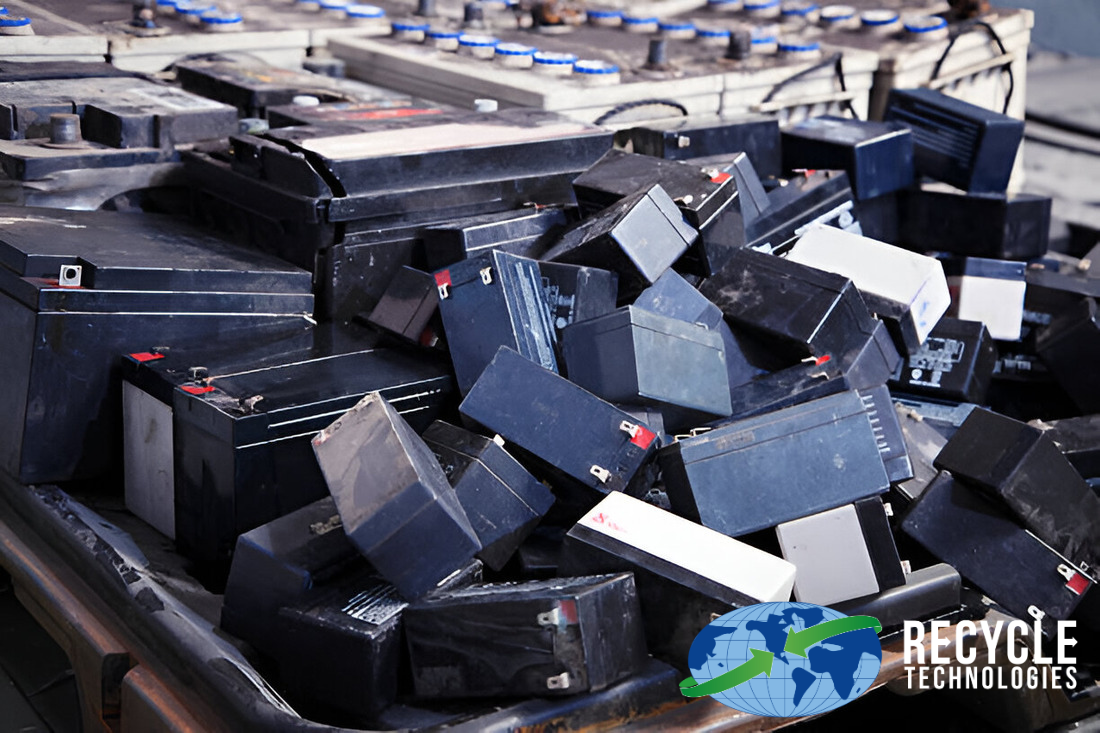Batteries are devices that can convert chemical energy into electrical by means of an electrochemical reaction. They provide backup power during a power outage. Rechargeable batteries are used in appliances such as laptops, electric cars, etc. that consume too much energy. After their use, old batteries are considered discarded electronic waste as they contain hazardous material detrimental to health and the environment.
Recycling Lithium-ion batteries makes your life a perfect choice for commercial and industrial enterprises. These recycling batteries have a wide spectrum of real-world applications from emergency power backups to electric vehicles. Lithium-ion batteries might be the future but without proper safe disposal, it becomes a challenge. If not recycled properly, you will find yourself at risk of fire or toxins accumulating in the ecosystem.
The lithium-ion batteries are more complex in composition, and highly flammable. Fires in landfills or battery-recycling facilities happen due to inappropriate disposal methods.
Recycle Technologies is fully capable of a battery recycling operation. We provide opportunities by creating jobs. We not only divert hazardous waste from landfills but we have made a zero pledge to do so in the first place.
How do you differentiate between lithium batteries and lithium-ion batteries?
The main difference between the two is that lithium batteries are not chargeable while lithium-ion batteries are rechargeable. The application of lithium-ion batteries makes it a more viable solution for consumers. EV (Electric Vehicle) batteries can withstand repeated charges making them an ideal choice. It reflects the wide usage of lithium-ion batteries in industries. For this reason, despite the complexity of composition, customers demand electronic gadgets with rechargeable batteries for the best results.
What is the composition of your lithium-ion recycling batteries you are using?
Lithium-ion battery's raw material varies in composition. All the usual types of recycling battery consist of lithium, graphite, and cobalt which includes manganese and nickel in various ratios. The most sought metals in Recycling processes are Nickel and Cobalt due to their ecological and economic value.
Which products use lithium-ion batteries?
These batteries have many applications, so as the sources at your place;
- Digital cameras
- Pacemakers
- Emergency power backup
- Smartphones and laptops
- Watches
- Medical equipment
- Marine vehicles
- Alarm Systems
- Electric vehicles
- Portable power packs
- Golf carts and trolleys
Consequences for not properly disposing of lithium-ion batteries:
Due to its massive consumption and usage, spent batteries become a problem by storing them or discarding them. The following are the consequences if lithium-ion batteries are not disposed of immediately.
The greatest challenge of the 21st century is to protect the environment from toxic heavy metals. Lithium-ion batteries, known as e-waste, have become a pressing issue for ecosystems. Winding up landfills or unsafe destruction of these recycling batteries leads to bioaccumulate in living systems through water and soil contamination.
Safety concerns about lithium-ion batteries are critical to handle. If dismantled improperly, it can ignite fire in commercial waste bins and landfills. Spent batteries are dangerous and can explode with changing temperatures. The chemicals inside these batteries are highly reactive. Its spark can burn enormous amounts of combustible waste.
Unsafe disposal of end-life batteries is detrimental to health. Toxic chemicals bio-accumulate in ecosystems that magnify at each trophic level. It leads to an increase in the risk of cancer by impairing the DNA structure. Neurotoxicity is caused due to exposure to these chemicals.
Intensive mining to extract minerals for battery manufacturing can cause resource overharvesting, erosion, and pollution. Mining also produces toxic soils and dust with high concentrations of heavy metals putting human health at risk. Nickel and cobalt in Lithium-ion batteries have economic value for using it on purpose.

What makes our RTI facility the best for battery recycling?
Our RTI facilities can solve your battery waste safety disposal issue. We are here for the safe dismantling of your end-of-life batteries or e-waste.
-
Compliance with regulations
RTI is committed to ensuring compliance with regulations for the safe disposal and recycling of lithium-ion batteries. We contribute to maintaining safe and sustainable environments for generations.
We help prevent air, soil, and water pollution. Recycling e-waste also reduces the Environmental impact of the production of new electronic gadgets. We are protecting our earth from greenhouse gas emissions.
We strive to fulfill our commitment to the environment. By properly advocating residents on what to recycle helps us reduce our overall Carbon emission. Our goal is to promote a circular economy and preserve our ecosystems free from pollution.
Recycling Technologies provides safety at the facility to protect workers and the environment. We foster a safe culture and the best safety measures to maintain a sustainable environment. In return, trust is built among our stakeholders.
We have all the mandatory certifications required for sustainable recycling. Our Responsible certificate program focuses on handling and recycling electronic waste with great care. We are committed to protecting the environment and discarding data in a safe manner.
Conclusion
Spent Lithium-ion batteries pose environmental and health risks if dumped in landfills. RTI offers the best services to handle your e-waste.
Contact us today & we will make sure e-waste is not a liability for you.













